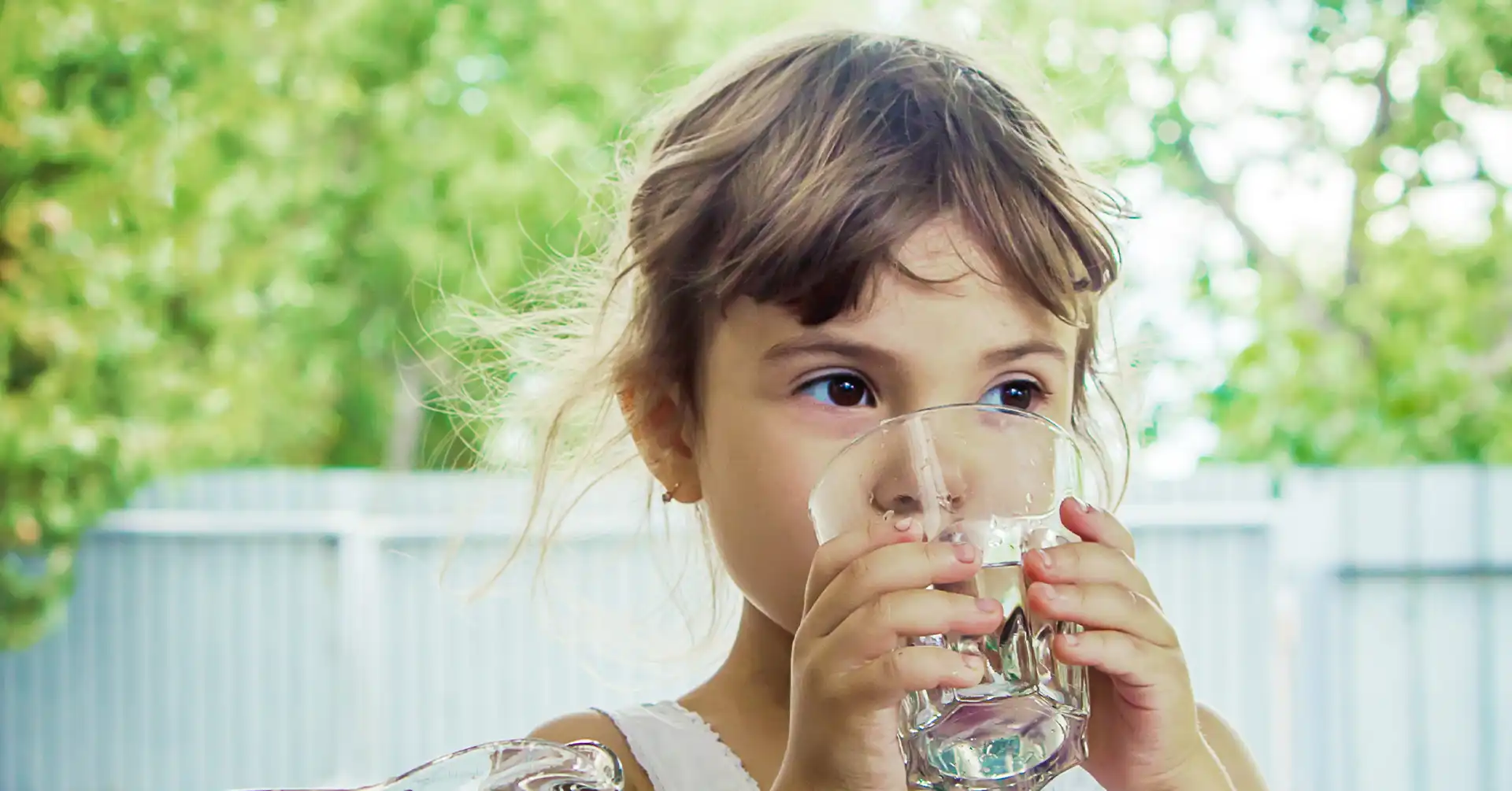Water is the cornerstone of good health for children. It is not just a thirst quencher; it is essential for various bodily functions. From regulating body temperature to aiding digestion and nutrient absorption, water is the unsung hero in keeping young bodies functioning optimally. Without adequate water intake, children can face a range of issues, affecting their energy levels, concentration, and overall health.
Supporting Physical and Mental Growth
Water acts as a natural fuel, providing energy that keeps children active and alert throughout the day. It supports the growth of healthy cells and tissues, ensuring that kids can reach their full physical and mental potential. Proper hydration also aids in cognitive functions, enhancing memory and focus, which are vital for learning and development, both inside and outside the classroom.
Maintaining Balance and Well-being
In addition to physical growth, water plays a crucial role in maintaining a balance in the body. It helps in flushing out toxins, supporting the immune system, and preventing illnesses. Proper hydration also contributes to the healthy functioning of organs such as the kidneys and liver, ensuring that children grow up with strong, resilient bodies.
Understanding Children’s Hydration Needs
Children’s hydration needs are influenced by various factors that parents should be aware of to ensure their little ones stay healthy and well-hydrated. Let’s delve into these factors to understand how they impact children’s hydration levels.
Factors Affecting Children’s Hydration Levels
Several factors play a crucial role in determining how much water a child needs:
- Climate and Weather: Hot and humid weather increases the body’s need for water due to excessive sweating, making it essential for children to drink more water during such conditions.
- Physical Activity: Active children lose fluids through sweat, emphasizing the importance of rehydration. Encouraging them to drink water before, during, and after physical activities is vital to maintaining their hydration levels.
- Illness: When children are unwell, especially if they have a fever, vomiting, or diarrhea, their body loses fluids rapidly. It’s crucial to provide them with small sips of water frequently to prevent dehydration.
How Age and Weight Influence Water Requirements
- Age: Younger children have a higher water content in their bodies compared to adults, making them more susceptible to dehydration. Infants and toddlers need smaller but frequent sips of water throughout the day, while older children can drink larger quantities at once.
- Weight: Heavier children generally require more water than lighter ones. It’s essential to consider a child’s weight when determining their daily water intake.
Physical Activity and Hydration: What Parents Should Know
Physical activity significantly impacts a child’s hydration needs. When kids engage in activities like sports, running, or playing outdoors, they sweat, losing essential fluids. Parents should encourage their children to drink water before starting the activity and take short breaks to hydrate during the playtime. Teaching kids about the importance of water during physical activities helps them understand the connection between staying hydrated and feeling good.
Signs of Dehydration in Children
Recognizing Dehydration: Common Symptoms and Warning Signs
Dehydration occurs when the body loses more water than it takes in, leading to an imbalance that can be harmful, especially for children. It’s crucial for parents to be aware of the common symptoms and warning signs indicating dehydration in their little ones.
Dry Mouth and Thirst:
One of the initial signs of dehydration is a dry mouth and an unquenchable thirst. Children might continuously ask for water as their bodies try to compensate for the lack of fluids.
Dark Yellow Urine:
Another clear indicator is the color of their urine. Dark yellow urine suggests concentrated waste products due to insufficient water intake.
Reduced Urination:
If your child is visiting the bathroom less frequently than usual, it could be a sign of dehydration. Adequate hydration keeps the urinary system functioning properly.
Fatigue and Irritability:
Dehydrated children often feel tired, sluggish, and irritable. Lack of water affects their energy levels and mood, making them less active and more prone to crankiness.
Dizziness and Lightheadedness:
In severe cases, dehydration can lead to dizziness and lightheadedness. Children might find it hard to stand or walk steadily.
The Impact of Dehydration on Children’s Health and Performance
Insufficient water intake can have a significant impact on children’s overall health and performance, affecting various aspects of their daily lives.
Impaired Cognitive Function:
Dehydration can impair cognitive functions such as concentration, alertness, and memory. This can affect a child’s performance in school, making it harder to focus on lessons and complete tasks.
Decreased Physical Endurance:
Inadequate hydration affects physical endurance and stamina. Children might find it challenging to participate in physical activities, sports, or even regular playtime due to low energy levels.
Risk of Heat-Related Illnesses:
During hot weather or vigorous physical activities, the risk of heat-related illnesses like heat exhaustion or heatstroke increases significantly if a child is not properly hydrated. These conditions can be life-threatening if not addressed promptly.
Compromised Immune System:
Proper hydration is essential for a robust immune system. Dehydrated children are more susceptible to illnesses, making it harder for their bodies to fight off infections and diseases.
Recognizing these signs and understanding the impact of dehydration emphasizes the importance of ensuring that children have access to an adequate and regular intake of water throughout the day. Proper hydration is fundamental to their well-being and overall development.
Tips for Encouraging Kids to Drink More Water
Creative Ways to Make Hydration Fun for Children
Encouraging kids to drink more water doesn’t have to be a chore; it can be an enjoyable experience. By incorporating creativity into daily routines, parents can make hydration a fun and engaging activity for their children. Here are some creative ways to make drinking water exciting:
- Colorful Infused Water: Add slices of fruits like strawberries, oranges, or cucumbers to water. Not only does it enhance the flavor, but it also makes the water visually appealing, enticing children to drink more.
- Fun Water Bottles: Invest in colorful and unique water bottles featuring your child’s favorite characters or designs. Having a special bottle can make drinking water more appealing.
- Reward Systems: Create a reward chart where kids earn stickers or small rewards for every glass of water they drink. This positive reinforcement encourages them to stay hydrated.
- Water-Based Games: Organize simple games like a water balloon toss or a splash contest in the backyard. Engaging in water-related activities not only keeps kids entertained but also ensures they stay hydrated during playtime.
Balancing Water Intake with Other Beverages: What Parents Should Consider
While encouraging water consumption, it’s essential for parents to strike a balance between water and other beverages in their child’s diet. Here’s what parents should consider:
- Limit Sugary Drinks: Reduce the intake of sugary beverages like soda, fruit juices, and energy drinks. Encouraging water as the primary beverage helps cut down on excess sugar, promoting better overall health.
- Educational Conversations: Talk to your child about the benefits of drinking water and why it’s essential for their health. Understanding the importance can motivate them to choose water over sugary alternatives.
- Lead by Example: Children often mimic their parents’ behavior. If parents prioritize drinking water, children are more likely to follow suit. Be a positive role model for your child’s hydration habits.
Hydration Strategies for Picky Eaters and Children with Special Dietary Needs
Picky eaters and children with special dietary needs may require additional attention when it comes to hydration. Here are some strategies to ensure they stay properly hydrated:
- Flavored Water Options: If your child is a picky eater, try offering naturally flavored water with a hint of their favorite fruits. Experiment with different flavors to find what appeals to their taste buds.
- Consult a Pediatrician: If your child has specific dietary restrictions or health conditions, consult a pediatrician or a nutritionist for personalized hydration advice. They can provide tailored recommendations based on your child’s unique needs.
- Hydration-Friendly Snacks: Include water-rich snacks like watermelon, cucumber, or yogurt in your child’s diet. These foods not only contribute to hydration but also offer essential nutrients, making them a healthy choice for picky eaters.
By incorporating these creative approaches and considering individual preferences, parents can effectively encourage their kids to drink more water, ensuring they stay properly hydrated for optimal health and well-being.
Setting Hydration Goals: How Much Water Should Kids Drink Daily?
It’s crucial for parents to understand the right amount of water their kids need daily. Young children are more vulnerable to dehydration, making it vital to set hydration goals. The general guideline is to encourage your child to drink at least eight cups of water a day. However, this can vary based on their age, activity level, and climate. To be more precise, a good rule of thumb is to provide them with 1-1.5 liters of water per day, depending on their age and size. By setting these hydration goals, parents ensure their children stay adequately hydrated, promoting overall health and well-being.
Best Practices for Packing Hydrating Snacks in School Lunches
Incorporating hydrating snacks into your child’s school lunches is an excellent way to boost their water intake. Opt for snacks with high water content, such as fruits like watermelon, oranges, and strawberries. Additionally, includes vegetables like cucumbers and celery, which are hydrating and nutritious. Yogurt and smoothies made with fresh fruits are also great options. By packing these hydrating snacks, parents can ensure that their children receive essential nutrients and stay hydrated throughout the school day.
Water Safety: Ensuring Clean and Safe Drinking Water for Children
Ensuring clean and safe drinking water is essential for your child’s health. Start by regularly checking the source of your tap water. If you have concerns about its quality, consider using a water filter to remove impurities. Encourage your child to drink water from trusted sources, especially at school. Teach them about the importance of avoiding untreated or unfiltered water from lakes or rivers. By being vigilant about water safety, parents can safeguard their children from waterborne illnesses, promoting their overall well-being.
Conclusion
It is not just about the quantity of water consumed but the quality of hydration habits developed. By nurturing these habits early and reinforcing them consistently, parents empower their children to lead healthier, happier lives. Water, as the cornerstone of good health, plays a pivotal role in this journey towards a brighter and more vibrant future.
Read More:






